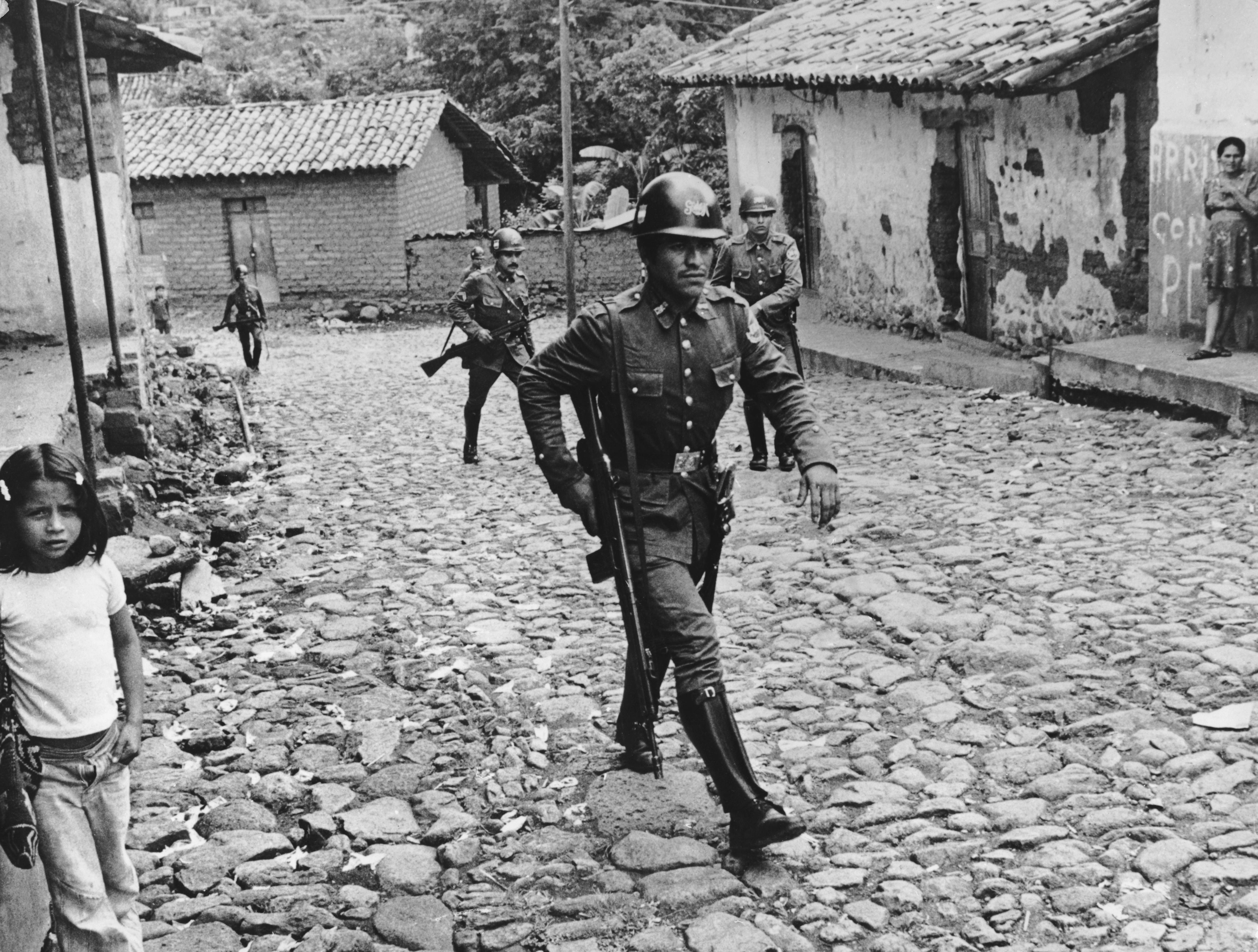Laura Weiss/October 21, 2020
Roberto Lovato’s “Unforgetting” explores the traumatic history of a country torn apart by wars and gangs—and the dangers of not facing the past.

Government militia patrol a village in El Salvador during the civil war.
MAX SCHNEIDER/GETTY IMAGES
Government militias patrol a village in northern El Salvador during the country’s brutal civil war.
In 1982, Joan Didion famously wrote of El Salvador that “terror is the given of the place.” At the time, the country was in the midst of a civil war, which pitted the leftist guerrillas of the Faribundo Martí National Liberation Front, or FMLN, against the country’s military, supported and armed by the United States. During the war, which lasted from 1980 to 1992, some 50,000 civilians were killed, with the lion’s share of atrocities committed by the military. The conflict compelled more than a quarter of the country’s 4.5 million people to seek safety in nearby countries as well as the U.S., where most were denied asylum despite the bloody conditions they were fleeing.
Roberto Lovato has no illusions about the violence that has permeated the history of El Salvador. However, his debut book, Unforgetting: A Memoir of Family, Migration, Gangs, and Revolution, is determined to unravel the many stereotypes that outsiders like Didion have perpetuated about the country, to make room for new insights about the trauma that generations of Salvadorans have endured.
Lovato, who is Salvadoran-American, claims early on that his book seeks to explore the roots of gang violence in El Salvador, but it is about much more than that. Unforgetting covers a lot of ground, jumping between time periods, characters, countries, and even genres. It is part memoir, part reported narrative, and even part crónica, or chronicle, a genre first made famous by Gabriel García Márquez that straddles the line between fiction and journalism.
Sections of the book narrate Lovato’s childhood in the Mission District of San Francisco in the 1970s, where he was raised by two immigrant parents. Another, set in the 1920s, reconstructs the childhood of his father, with whom Lovato has a tense and occasionally violent relationship. Significant portions take place during the Salvadoran civil war, when Lovato was deeply involved in solidarity efforts with the FMLN. Another part of the book takes place in 2015, when an interview with a Salvadoran child held in immigrant detention in Karnes, Texas, motivates Lovato to report on what has driven so many to seek refuge outside of El Salvador.
The book illuminates the depths of violence that have shaped El Salvador: from the wiping out of large swaths of Indigenous people during the colonial period to the 1932 matanza, or massacre, carried out by the army, which the historian Anders Sandberg, quoted by Lovato, calls one of the “most violent episodes of the modern era.” Then there are the atrocities of the civil war, like the 1981 El Mozote massacre, during which military officers, funded and abetted by the U.S., wiped out an entire town in the course of one day.
More:
https://newrepublic.com/article/159853/el-salvador-violence-unforgetting
 = new reply since forum marked as read
= new reply since forum marked as read
